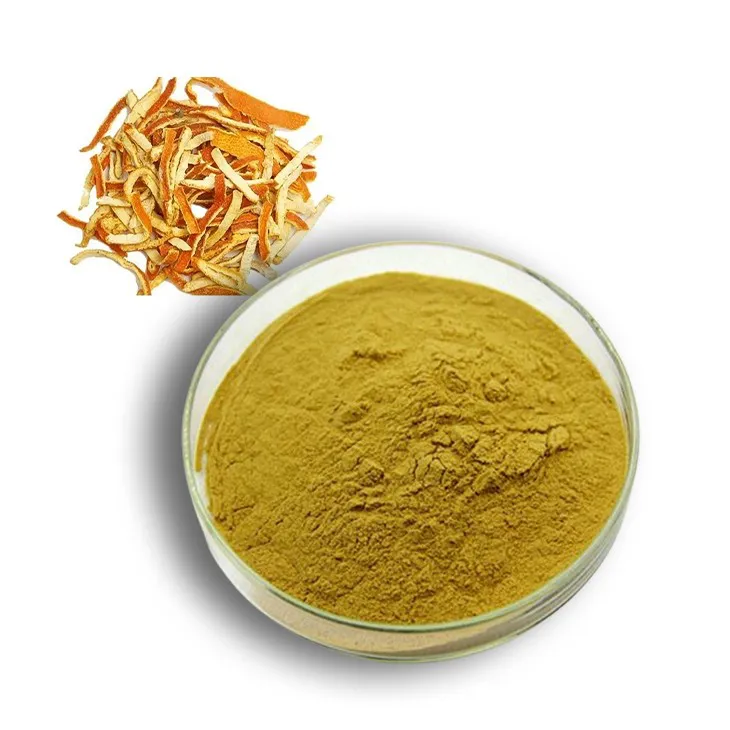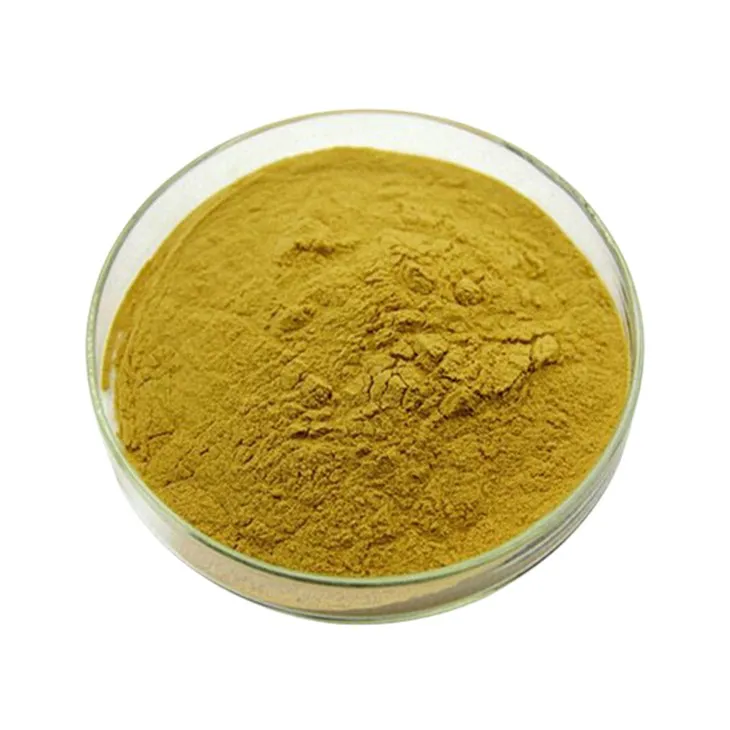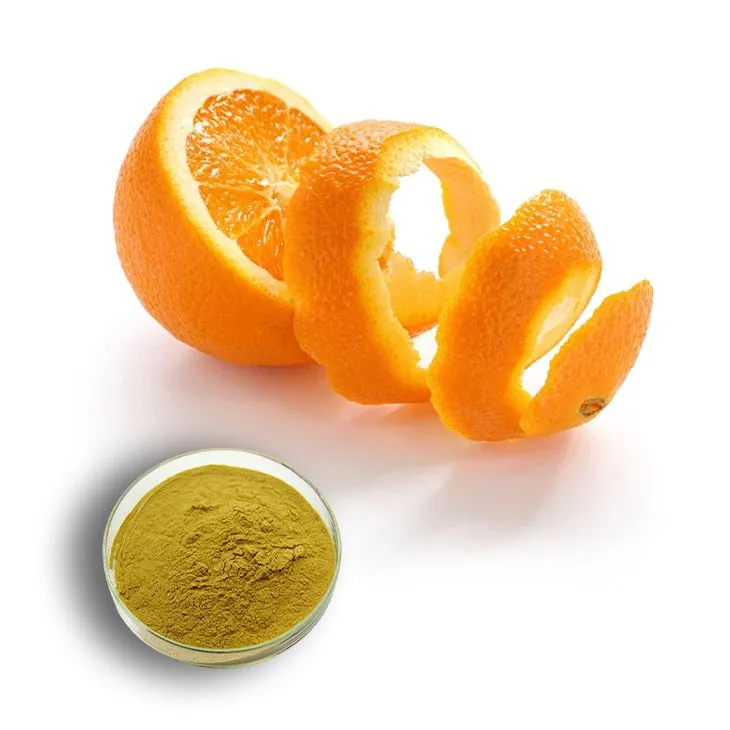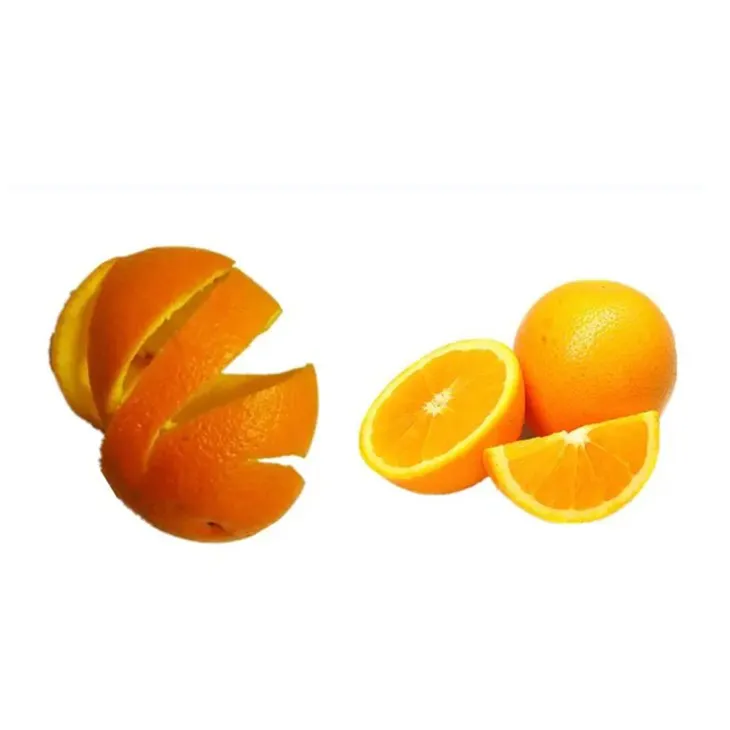- 0086-571-85302990
- sales@greenskybio.com
Use hesperidin to prevent diseases and enhance immunity.
2024-11-12

1. Introduction
In the pursuit of a healthy life, people are constantly exploring various natural substances that can help prevent diseases and enhance the body's immunity. One such substance that has been gaining increasing attention is Hesperidin. Hesperidin is a flavonoid found abundantly in citrus fruits, such as oranges, lemons, and grapefruits. It has been the subject of numerous scientific studies due to its potential health - promoting properties.

2. Antioxidant Properties of Hesperidin
2.1. What are Antioxidants?
Antioxidants are substances that can prevent or slow damage to cells caused by free radicals. Free radicals are unstable molecules that are produced during normal cellular metabolism as well as due to environmental factors like pollution, radiation, and smoking. These free radicals can cause oxidative stress, which is associated with a wide range of diseases, including cancer, heart disease, and neurodegenerative disorders.2.2. How Hesperidin Acts as an Antioxidant
Hesperidin has been shown to possess strong antioxidant properties. It can scavenge free radicals in the body, thereby reducing oxidative stress. This is achieved through its chemical structure, which allows it to donate electrons to stabilize free radicals. For example, in vitro studies have demonstrated that hesperidin can effectively neutralize reactive oxygen species (ROS) such as superoxide anions and hydroxyl radicals.2.3. The Significance of Antioxidant Activity in Disease Prevention
By reducing oxidative stress, hesperidin can play a crucial role in preventing various diseases. For instance, in the case of cardiovascular diseases, oxidative stress can lead to the oxidation of low - density lipoprotein (LDL) cholesterol, which is a major risk factor for atherosclerosis. Hesperidin's antioxidant activity can prevent the oxidation of LDL, thus reducing the risk of developing heart - related problems. Similarly, in cancer prevention, it can protect cells from DNA damage caused by free radicals, which may inhibit the initiation and progression of cancer.
3. Impact on Cellular Health
3.1. Cell Membrane Protection
Hesperidin can contribute to the health of cell membranes. The cell membrane is a vital component of cells, as it regulates the passage of substances in and out of the cell. Hesperidin can help maintain the integrity of cell membranes by protecting them from damage caused by free radicals and other harmful agents. This protection is essential for normal cell function, as a damaged cell membrane can lead to improper cellular communication and function.3.2. Regulation of Cellular Signaling Pathways
Another important aspect of hesperidin's impact on cellular health is its ability to regulate cellular signaling pathways. Cellular signaling pathways are complex networks that control various cellular processes, such as cell growth, differentiation, and apoptosis (programmed cell death). Hesperidin has been found to modulate key signaling pathways, such as the MAPK (mitogen - activated protein kinase) and NF - κB (nuclear factor - kappa B) pathways. By regulating these pathways, hesperidin can influence cellular processes in a way that promotes health and disease prevention. For example, by modulating the NF - κB pathway, it can reduce inflammation at the cellular level, which is associated with many chronic diseases.3.3. Promotion of Cell Survival and Repair
In addition to protecting cell membranes and regulating signaling pathways, hesperidin can also promote cell survival and repair. It can stimulate the production of antioxidant enzymes within cells, which further enhances the cell's ability to combat oxidative stress. Moreover, hesperidin may also play a role in DNA repair mechanisms, helping to correct any damage that may occur in the cell's genetic material. This is important for preventing mutations that could lead to the development of diseases, such as cancer.
4. Hesperidin and Immune System Enhancement
4.1. Immune System Basics
The immune system is a complex network of cells, tissues, and organs that work together to defend the body against foreign invaders, such as bacteria, viruses, and parasites. It consists of two main components: the innate immune system, which provides immediate, non - specific defense, and the adaptive immune system, which mounts a specific response to particular pathogens.4.2. How Hesperidin Boosts the Immune System
Hesperidin can enhance the immune system in several ways. Firstly, its antioxidant properties help protect immune cells from oxidative damage, ensuring their proper function. Immune cells, such as lymphocytes and macrophages, are constantly exposed to free radicals during their activation and function. By scavenging these free radicals, hesperidin can maintain the viability and functionality of these cells. Secondly, hesperidin has been shown to stimulate the production of cytokines, which are signaling molecules that play a crucial role in immune responses. For example, it can increase the production of interferon - gamma, which is important for antiviral and antibacterial immunity. Thirdly, hesperidin can also enhance the phagocytic activity of macrophages, which are responsible for engulfing and destroying foreign pathogens.4.3. The Role of Hesperidin in Preventing Infections
Due to its immune - enhancing properties, hesperidin can play a significant role in preventing infections. By strengthening the immune system, it can help the body better resist the invasion of bacteria, viruses, and other pathogens. For example, in the case of viral infections, a stronger immune system can more effectively recognize and eliminate the virus, reducing the severity and duration of the illness. Similarly, in bacterial infections, hesperidin - enhanced immune cells can more efficiently engulf and kill bacteria, preventing the spread of the infection.
5. Hesperidin in the Diet
5.1. Dietary Sources of Hesperidin
As mentioned earlier, hesperidin is mainly found in citrus fruits. Oranges are a particularly rich source, with the peel containing a higher concentration of hesperidin compared to the flesh. Lemons and grapefruits also contain significant amounts of this flavonoid. In addition to fresh fruits, hesperidin can also be obtained from citrus - based products, such as orange juice (although the concentration may be lower due to processing), and dietary supplements.5.2. Recommended Intake and Absorption
There is currently no official recommended daily intake for hesperidin. However, studies have suggested that consuming a diet rich in citrus fruits can provide an adequate amount of hesperidin for potential health benefits. The absorption of hesperidin in the body is relatively low, as it is a large molecule. However, some studies have shown that certain factors, such as the presence of other flavonoids or dietary fiber, can enhance its absorption.6. Safety and Precautions
6.1. General Safety
Hesperidin is generally considered safe for consumption. It has been used in traditional medicine for centuries without significant reports of adverse effects. However, as with any substance, excessive intake may have potential risks.6.2. Potential Interactions
There may be potential interactions between hesperidin and certain medications. For example, it may interact with drugs that are metabolized by the cytochrome P450 enzyme system. Therefore, if you are taking medications, it is advisable to consult your doctor before starting to take hesperidin supplements.7. Conclusion
Hesperidin is a remarkable natural compound with significant potential in preventing diseases and enhancing immunity. Its antioxidant properties, impact on cellular health, and ability to boost the immune system make it a valuable addition to a healthy lifestyle. While more research is still needed to fully understand its mechanisms of action and to establish optimal dosages, incorporating citrus fruits, which are rich in hesperidin, into the diet can be a simple and natural way to potentially reap its health benefits. However, it is important to be aware of safety considerations and potential interactions, especially when considering the use of hesperidin supplements.
FAQ:
What is hesperidin?
Hesperidin is a flavonoid, which is a type of natural compound mainly found in citrus fruits. It has a chemical structure that gives it certain biological activities beneficial to human health.
How does hesperidin prevent diseases?
It has antioxidant properties. Free radicals in the body can cause damage to cells and DNA, leading to various diseases. Hesperidin can scavenge these free radicals, reducing oxidative stress. It also has anti - inflammatory effects, which can help in preventing chronic inflammatory - related diseases such as arthritis. Additionally, it may play a role in maintaining cardiovascular health by reducing factors like cholesterol levels and blood pressure, thus preventing heart diseases.
How does hesperidin enhance immunity?
Hesperidin can enhance the function of immune cells. It can stimulate the activity of macrophages, which are important immune cells responsible for engulfing and destroying foreign invaders like bacteria and viruses. Moreover, by maintaining the integrity of cells and promoting cell - to - cell communication, it helps the immune system function more effectively.
Are there any side effects of using hesperidin?
When consumed in normal dietary amounts from foods, hesperidin is generally safe. However, when taken in high - dose supplements, some people may experience mild side effects such as gastrointestinal discomfort, including nausea and diarrhea. It is always advisable to consult a healthcare provider before starting any high - dose supplement regime.
What are the best sources of hesperidin?
Citrus fruits are the best natural sources of hesperidin. Oranges, lemons, and grapefruits contain significant amounts of this flavonoid. Some processed citrus products like orange peel extract may also be a concentrated source of hesperidin.
Related literature
- The Role of Hesperidin in Health and Disease"
- "Hesperidin: A Flavonoid with Multiple Health - Promoting Properties"
- "Antioxidant and Immune - Boosting Effects of Hesperidin"
- ▶ Hesperidin
- ▶ citrus bioflavonoids
- ▶ plant extract
- ▶ lycopene
- ▶ Diosmin
- ▶ Grape seed extract
- ▶ Sea buckthorn Juice Powder
- ▶ Beetroot powder
- ▶ Hops Extract
- ▶ Artichoke Extract
- ▶ Reishi mushroom extract
- ▶ Astaxanthin
- ▶ Green Tea Extract
- ▶ Curcumin Extract
- ▶ Horse Chestnut Extract
- ▶ Other Problems
- ▶ Boswellia Serrata Extract
- ▶ Resveratrol Extract
- ▶ Marigold Extract
- ▶ Grape Leaf Extract
- ▶ blog3
- ▶ blog4
- ▶ blog5
-
Organic Tongkat Ali extract powder factory.
2024-11-12
-
How to make powder with ashwagandha extract.
2024-11-12
-
Rosehip extract manufacturers from China.
2024-11-12
-
The best cat's claw extract in nature.
2024-11-12
-
Chinese Dandelion Leaf Extract Suppliers.
2024-11-12
-
Elderberry Extract
2024-11-12
-
Gynostemma pentaphyllum extract
2024-11-12
-
Lotus leaf extract
2024-11-12
-
Cactus Extract
2024-11-12
-
Hawthorn powder
2024-11-12
-
Alfalfa Meal
2024-11-12
-
Honeysuckle Pollen
2024-11-12
-
Buckthorn bark extract
2024-11-12
-
Citrus Aurantii Extract
2024-11-12
-
Dandelion Root Extract
2024-11-12





















